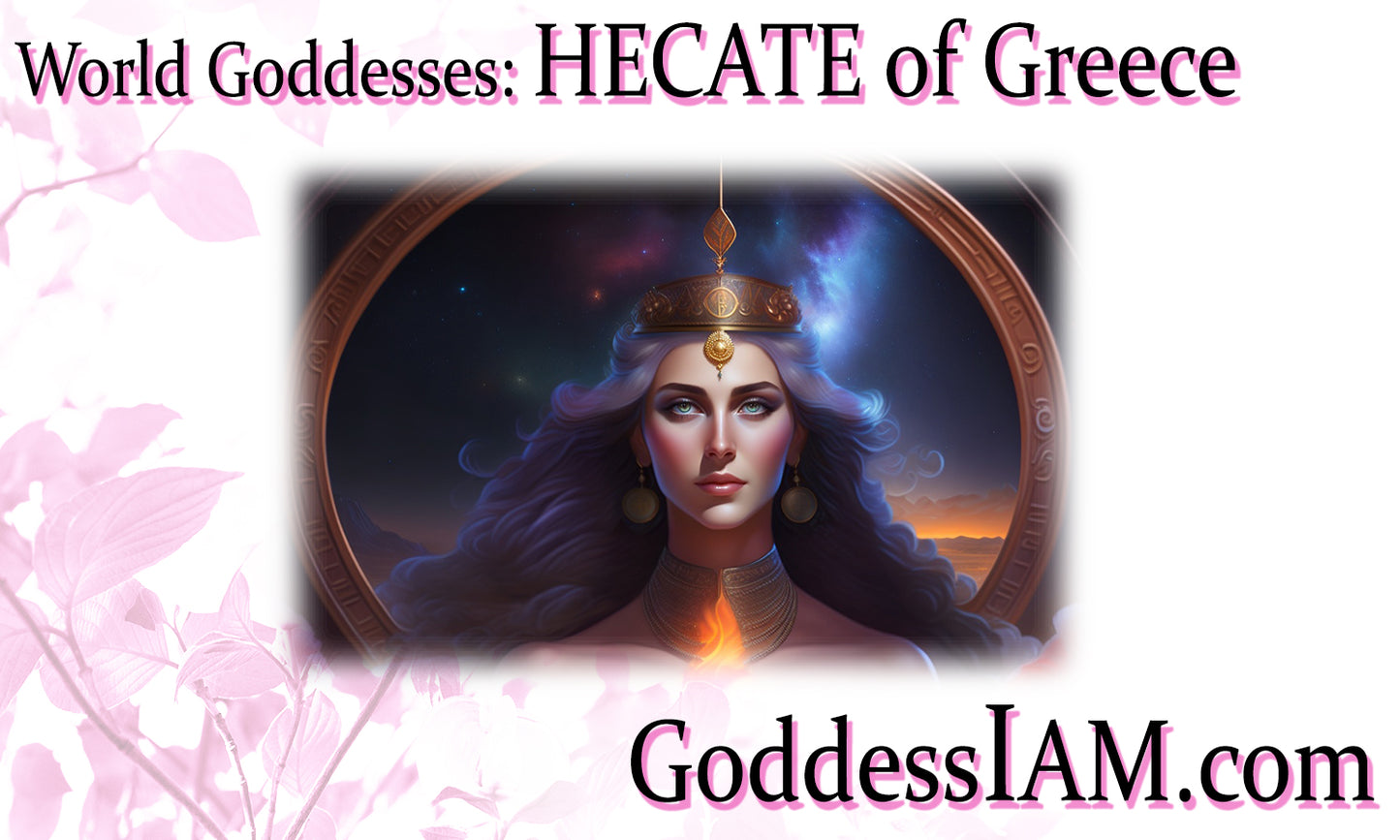
Ancient mythology is replete with powerful goddesses who symbolize various aspects of femininity. Among them, Goddess Hecate stands as a formidable figure associated with magic, wisdom, and transformation. This essay aims to delve into the divine essence of Hecate and her profound relevance to women's issues, both in ancient times and the modern era.
Goddess Hecate: The Triple Goddess: In Greek mythology, Hecate is revered as a complex and multifaceted goddess. Often depicted as a triple deity, she embodies the stages of a woman's life: the maiden, the mother, and the crone. This tripartite aspect reflects the cyclical nature of existence and emphasizes Hecate's connection to women's experiences and the challenges they face at different stages of life.
Mistress of Magic and Wisdom: Hecate is known as the mistress of magic and the goddess of wisdom. She possesses vast knowledge of herbalism, healing, divination, and occult practices. Hecate's association with these mystical arts highlights the power and wisdom that women possess in the realm of spirituality and intuition. Her divine presence encourages women to explore their innate magical abilities, embrace their intuition, and seek wisdom in their life's journey.
Protector of Women and Children: Hecate's mythology often portrays her as a protector of women and children. She safeguards women during childbirth, guiding them through the transformative process of becoming mothers. Additionally, Hecate is believed to protect women in vulnerable situations, such as those facing domestic abuse or societal marginalization. Her presence resonates with women who seek strength, support, and protection, reminding them of their inherent resilience and the importance of standing up against injustice.
Goddess of the Underworld: Hecate's association with the underworld represents her transformative power and the ability to navigate the depths of the human psyche. As a goddess of liminal spaces, she guides individuals through transitions, including life and death. This aspect of Hecate's mythology offers solace and empowerment to women facing personal challenges, encouraging them to embrace their inner strength, confront their shadows, and embark on transformative journeys of self-discovery.
Embracing the Dark and the Light: Hecate's symbolism embraces both the dark and the light aspects of life. She represents the shadows, the mysteries, and the uncharted territories of existence. By honoring and integrating these aspects, women can tap into their inner power, embracing the full spectrum of their emotions and experiences. Hecate's influence encourages women to be unafraid of their own darkness, empowering them to navigate life's challenges with courage and resilience.
Reclaiming Autonomy and Agency: Hecate's mythology often portrays her as an independent and autonomous goddess, unbound by societal constraints. This aspect resonates with women who seek to reclaim their autonomy and agency in a world that often suppresses their voices and restricts their choices. Hecate's presence inspires women to assert themselves, make their own decisions, and assert their power in all spheres of life.
Contemporary Relevance: In modern times, there has been a resurgence of interest in goddess spirituality and the reclamation of feminine power. Hecate's mythology and symbolism offer women a profound connection to their innate strength, wisdom, and transformative potential. Exploring Hecate's teachings and incorporating her principles into personal and collective practices can foster a sense of empowerment, healing, and unity among women.
